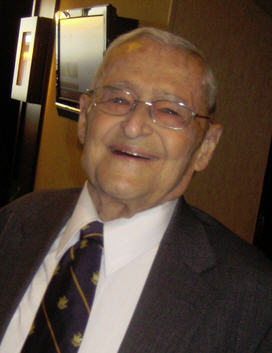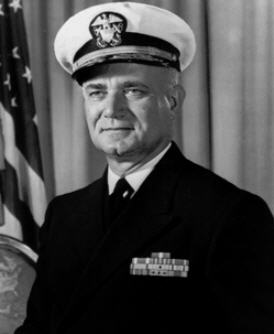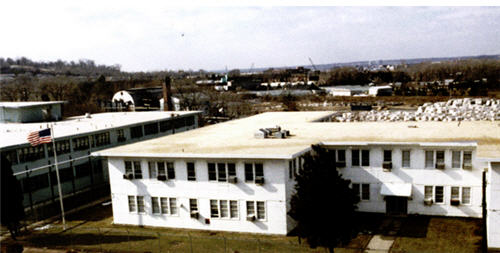
It was a Thursday afternoon at Willow. Big Jim and Liz-with-an-S and the irrepressible Jasper were attempting to manage the crowd at the Amen Corner. Jon-wiithout and John-with were enjoying drinks next to Old Jim, and Long Hair Mike was chatting up Jarhead Ray as they immersed themselves in the wonderful world of post-work at QualComm across the street. I was meeting the Admiral for one of our weekly sessions, and had got up to the point when he was coming home from Europe in 1953. The Korean conflict had raged while he was in Europe, and it was time for the military to adjust to the end of a war that had sucked five million Americans into the whirling vortex.
I had two pens and remembered a notebook for a change. I got a crisp happy hour white from Liz-S, and opened the notebook to the last scrawls halfway down the page. “OK- back from Europe and back to the grind here in Washington.” My pen hung above the notebook as I let some cool refreshing wine swirl on my palatte.
Mac cleared his throat and prepared to resume the tale. “So, I had a total of about two and a half years with the CINCNELM staff, a year in London and a year in Naples, then six months back in London, before I returned to the U.S. in December-January 1952-1953. I left in December and we arrived here in January. When I left London to come back to Washington, I had orders to return to the Special Intelligence Section, Yl, and I was looking forward to it. I was obviously comfortable with OPINTEL, and there were new threats to deal with as the Soviets became more truculent in their approach to diplomacy.”
“Funny that we can look back on it with a certain fondness. But you missed Korea.”
“Yes, I did miss it. The war was over on the Peninsula by July of 1953, and my time overseas almost coincided with the entire duration of the conflict. So I never include it on my biography, even if the experience in the Police Action diverted attention from a growing Soviet threat, and framed many of the intelligence issues of the day. So, despite nto haveing been there, Korea was a factor in everything: rising Red China, Russian proxies and surrogates, all the things that were going to happen in the Cold War,” said Mac. “After the ship docked in New York, we drove down to Washington and I stopped to call the head of “Y” branch, who I think was then-Captain Bruce Weber. I told him I was in the country and was going on leave, that I would be reporting in by such and such a date. He said, “I’m glad to hear from you; I’m glad to know all that, but your orders have been changed. You aren’t going to be working for me; you’re going to the Naval Intelligence School in Anacostia.”
“My Grandfather knew the place in the 1930s. That is where he and his Bonus Army comrades camped when they were demanding Government benefits for their wartime service.”
“Anacostia had not changed much. Still flat and green and prone to flooding. The school was located in one of the World War Two splinter-ville wooden buildings. I felt that the bottom had dropped out of my career. I had been rail-roaded out of the OPINTEL I loved so much. Instead, I was being sent to a back-water job that I had earlier turned down as being undesirable, and as far as I was concerned, was still undesirable. The only saving grace was that Captain Sam Frankel, a dear friend that I’d served under before at JICPOA in Hawaii. He was the Director, and I would have been happy to serve with him again in the right billet. I did call him up, and he was very gracious. He invited me and the family to stay at his home until we got settled, which wasn’t necessary because we were going on leave to Billie’s home down in southern Virginia. We got ourselves settled in, but I still was disappointed to not be going back into ONI and OPINTEL. Instead, I was going to be exiled to the wasteland of the basic school.”
“I can imagine the disappointment you felt after operating on major four and five-star staffs in real combat situations, or having lunch with Marshal Tito. The Schoolhouse would seem like a back-water.”

(RADM Samuel Frankel. In his military career, he served in the USS Trenton (CL-11), Augusta (CA-31), Chester (CA-27), and Chaumont (AP-5). Following this sea duty, he was Russian language student in Riga, Latvia, 1936-1938. He then served in the USS Ellet (DD-398) as gunnery officer and XO. He was Assistant Naval Attaché, Moscow, and Assistant Naval Attaché for Air, Murmansk-Archangel. In that connection with Lend-Lease shipments to the Soviet Union, he directed repairs to U.S. vessels, salvaging stranded and abandoned ships, and supervised hospitalization and repatriation of survivors of Nazi U-Boat attacks. Later, he rose to become Deputy Director of Naval Intelligence, and his last job on active duty was as Chief of Staff at DIA, the same job Mac held years later).
“I made an appointment and told Captain Frankel of my misgivings, my concern and my general lack of interest in educational matters. He said he appreciated my opinions and he was very accommodating. He said, “I’m going to give you six weeks to look at the curriculum and find out what we’re doing and then I’m going to let you pick the part that you’d like to be responsible for. So I did that. I sat in the lectures and looked at the curriculum and it became evident to me, and fairly soon, that despite the changes made by Captain Hindmarsh and Captain Layton, and the good work that Captain Frankel was doing, the program was still weak on OPINTEL, or at least the way I understood it from wartime operations. There were limitations on what we could teach, since we could not talk about Communications Intelligence, which was still heavily classified.
“COMINT,” I said.”But the Russians knew all about it. They had intelligence collectors everywhere in the government, and penetrated the Manhattan Project and just about everything else we were doing.”
He nodded, still passionate about the times and his tour. “The Russians were superb in their Human Intelligence capabilities. Still are, for that matter. Back then, our students were not cleared. I don’t believe there were any clearances provided for the school staff, and certainly not among the stud ents, most of whom were brand new to the Navy. So you couldn’t talk about COMINT as being a major source of what we called OPINTEL in the Navy. Instead, we had to talk about the other sources, so it made it a very artificial to try to emphasize the importance and significance, and the role of OPINTEL in supporting fleet activities and fleet operations in command decisions when you couldn’t talk about the main ingredient of intelligence.”
I nodded as I scribbled furiously. “By the time I went through the basic course, they had decided to send us all through the Armed Forces Air Intelligence Training Center at Lowrey Air Force Base in Denver. It was a weird relic of Vietnam and the Cold War. We had to be in class at 0600 in the morning and they let us go at lunchtime, just as if there was another class coming in behind us in the Afternoon, which there hadn’t been since Saigon fell. Was there ever any thought to establishing a sub- curriculum at the school for people who were heading for OPINTEL billets?”
“Not at that time. Of course, many years later all these things developed more realistically, particularly when they merged the All-Source and Air Intelligence communities together in 1968. I think, now, students in many of our schools are cleared for COMINT and other compartmented subjects. At that time, in 1953, there were no clearances for instructors or students.”
“At Denver, they worked our tickets in parallel with the course, and it was a big deal when we were getting to the Strategic block that they gave us our Top Secret Special Compartmented Intelligence Clearances. It was pretty cool. We thought we were real hot-shots. I am sure you could have done a lot more if the students had been cleared. But the school was really concerned with giving everybody a common baseline of capabilities, right?”
“That’s right, but it turns out that what was needed was even more simple than that. What I was trying to do was identify the areas where I felt that the curriculum was weak, and to contribute to the development of Operational Intelligence. I found two main areas of concern. One was nava l comrnunications , and the other was the ability to write succinct messages and to handle them properly, Naval Communications traffic was not a subject that was taught at the school at all . This was important because, at that time, the Naval Intell igence School was running two six – month classes per year, and eighty percent of our input was from Officer Candidate School and were mostly Ensigns.”
“Just like you were when you reported to Station HYPO” I said with a laugh.

(Naval Intelligence School at Anacostia, circa 1960).
Mac had the grace to humor me. “Our students had just come into the Navy; they’d been through OCS; and now they were coming to learn about intelligence, and among other things they needed to know about communications, and the very basic ingredient of OPINTEL. They didn’t know anything about naval communications either. Not how it worked, or how you wrote messages to effectively explain complex issues in a briefing format. The other thing I inserted into the course was what I called ‘observation and reporting.’ ”
“Useful topics for people who are supposed to be collectors of information,” I remarked. “They used to work us over on sample briefings on Soviet military capabilities to the class at Denver. But the good news was that any classified research had to be done at the library, which was cleared for Secret. We couldn’t take anything home for study and after a while, some of the people in my class would just go to the Officer’s Club at lunch and stay until Happy Hour.”
“I see some things haven’t changed. We couldn’t do that due to the clearance problem. What we came up with was a work-around that was useful to show the Ensigns how to do basic unclassified research. But we liked a hands-on approach. We used to take the school on field tri ps. One destination was the base at Quantico where the Marines put on some magnificent demonstrations of amphibious warfare capabilities. We also took them to Patuxent River to let them see the Naval Air Test Center, and to the David Taylor Model Basin where they test hull designs. A lot of the installations around here that show the exotic function of naval warfare, which we felt was a necessary part of the basic education in intelligence. We also encouraged them to look at the field trips the way a Soviet agent would. We wanted the students to observe and report, and they had to actually write on some aspect of something they observed in the course of these trips.”
“The Navy had figured that out by my time to be educated in the mysteries. They sent all of us new guys from the schoolhouse to aviation squadrons to cut our teeth on how the strike and power-project mission was really accomplished. We learned more about our Navy than the Soviets in that tour.”
“Not much different that reporting to HYPO from Public Affairs school in Seattle,” laughed Mac. “We’d get these intelligence reports in from the field trips, and I would have to review and grade them. That led to the realization that most of the Ensigns of the 1950s that were coming out of college and into the Navy couldn’t spell, and they didn’t know English grammar.
“Still a problem today,” I muttered. “Only it might be worse.”
“You had better believe it, Vic. When we went to Patuxent, you should have seen the variety of ways the word “helicopter” was spelled. It was just absolutely unbelievable. It was so bad that it led me to start a course in military terminology, spelling, and grammar. It actually was a course in collecting and writing intelligence reports. The librarian at the Intelligence School told me that, under the terms of reference to the school, I could not write a manual on basic English grammar and spelling. What we did had to directly be related to our profession.”
You would think that effective written and verbal communicating would the main skills required in the intelligence business.”
“I could not agree more. The Main Battery of intelligence, in fact. So, I wrote a little manual that we reproduced in pamphlet form called ‘Writing for Intelligence Officers,’ or something like that . But it was purely an effort to try to teach these college graduates- even the ones from the Ivy League schools- the English language. Those were the kinds of things Captain Frankel let me do. He was a good guy. He made flag, by the way, so his work was rewarded.”
“Making Flag was never anything I had to worry about,” I said. “Too much baggage. But I would be interested in finding copy of the pamphlet, since the problem has not changed one iota since 1953.” We both shook our heads at the sad state of public education. I looked up the Willow Bar, and things were just transitioning from the happy hour rush to the crowd that was going to be there for the long-haul of evening. I sighed. That was not going to be me, tonight, and we settled up our tabs with Big Jim, and I walked the Admiral out to his champagne-gold Jaguar.
“Next time we are going to finish off the 1950s,” I said hopefully.
“You might be careful with that. There was a lot of stuff going on then. It may take you a few more glasses of happy hour white than you anticipate.” Then he climbed into his Jag and motored off sedately down Fairfax Drive.
Copyright 2017 Vic Socotra
www.vicsocotra.com
